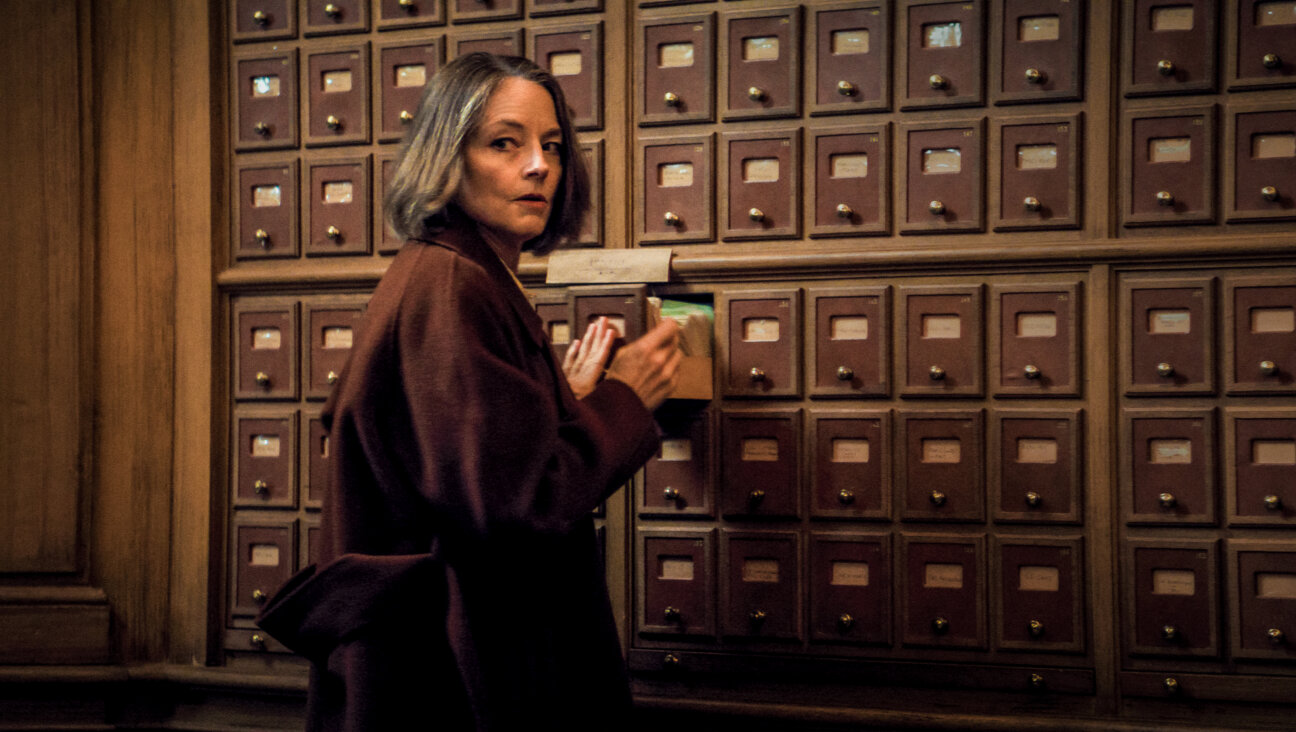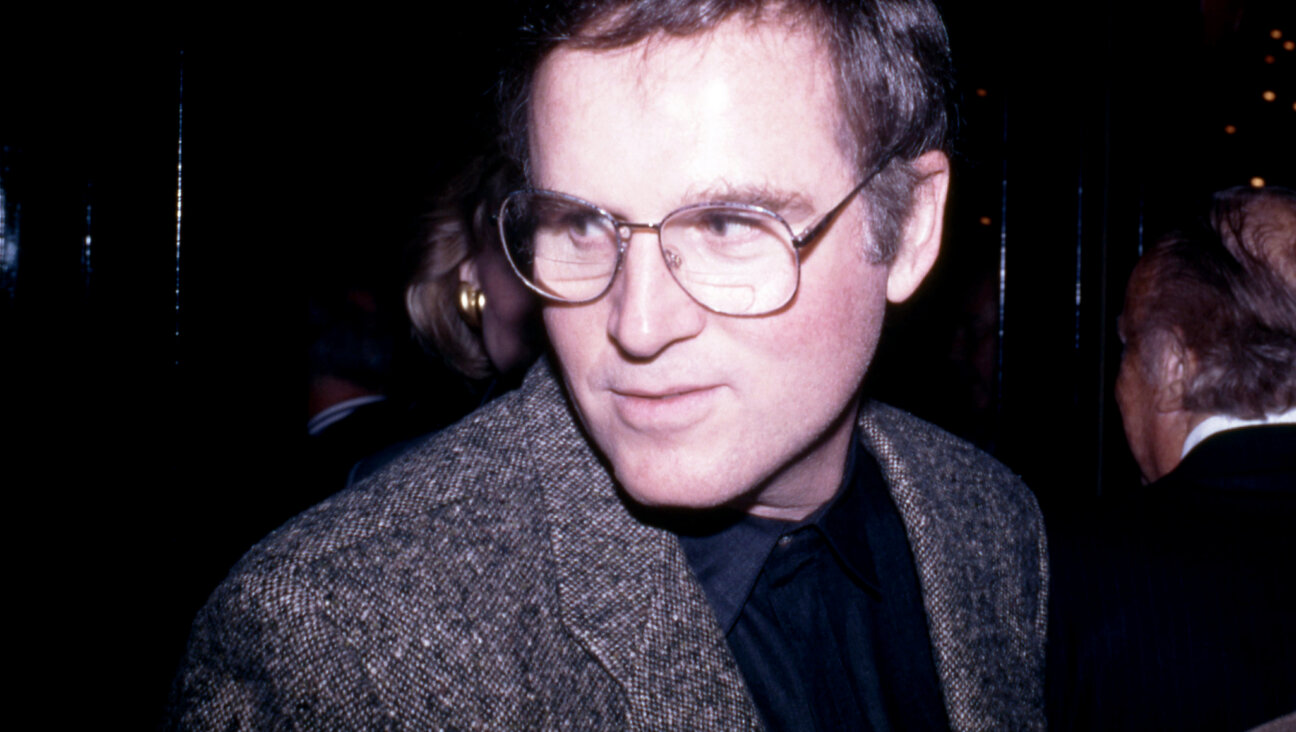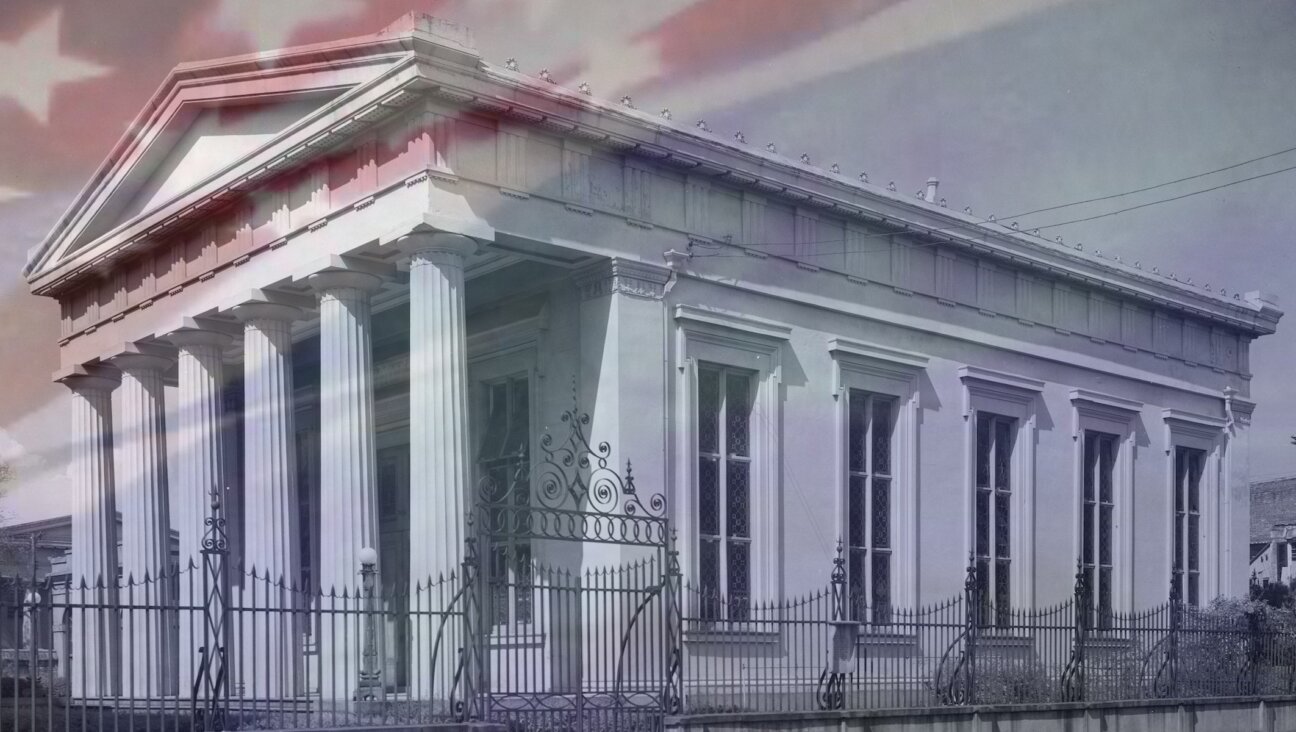Broken Glass And Insufficient Metaphors

Graphic by Angelie Zaslavsky
November 9–10, 1938, lives tragically in historical memory for the coordinated attacks against Jews in Germany and Austria by paramilitary forces and locals. A new book, “The Night of Broken Glass: Eyewitness Accounts of Kristallnacht,” argues that to sum up events in which some 400 Jews were murdered “or driven to suicide,” and 30,000 were sent to the Dachau, Buchenwald and Sachsenhausen concentration camps by using a metaphor evoking how windows were broken, is at best “ironically euphemistic.”
Translated by Robert Simmons and Nick Somers from “Nie Mehr Zurück in Dieses Land,” “Never Return to this Country,” edited by sociologist Uta Gerhardt and political historian Thomas Karlauf, this book has the virtue of making ironic metaphors irrelevant, not just inaptly reductive.
“The Night of Broken Glass” puts human faces on hitherto inadequately named events. The narrations were originally compiled by American sociologist and heroic anti-Nazi activist Edward Hartshorne, who was murdered in postwar Germany after he discovered, to his horror, that U.S. Army counterintelligence officials were smuggling Nazi war criminals out of Soviet-occupied Austria and Eastern Europe to South America to serve as future Cold War allies.
Almost a decade earlier, Hartshorne had joined a group of Harvard sociologists who were launching a writing competition for those who had experienced Nazi persecution. The essay contest drew hundreds of entries, including a handful from enthused Nazis who misunderstood the competition’s purpose. More than 250 manuscripts arrived, most from Jews.
From these, Hartshorne edited a group dealing with November 9–10, 1938, to form “Nazi Madness: November 1938,” a book that would never be published. After sending the book to a prospective publisher in 1941, Hartshorne joined the American Secret Service and the book never saw the light of day. Gerhardt and Karlauf rediscovered Hartshorne’s typescript in 2008, in a California archive. The editors call the collection “a document of the greatest importance for modern history.”
The resulting assemblage contains accounts written within a year or so of the events they describe. Nazi propaganda initially persuaded few, as a Nuremberg-born lawyer, Rudolf Bing — not to be confused with the opera impresario of the same name — wrote from Palestine. The supposed excuse for the Nazi pogrom was the November 7 killing of German diplomat Ernst vom Rath in Paris by Herschel Grynszpan, a German-born Jewish refugee. Yet Bing notes, “It was not as though this event had really upset the German people.” Bing adds:
“It was astonishing how in general the Jews in Nuremberg, despite all the hard knocks they had been dealt by fate, did not languish submissively but instead actively took matters in hand in their shrunken community, helped those who needed help, tried to keep the school and worship going and in particular, with everyone’s support, made it possible for young people to emigrate.”
Hope for the next generation was clearly a motivating force for Sofoni Herz, a teacher in a Jewish orphanage in Dinslaken, in West Germany. Gathering her charges — almost three dozen children — after vom Rath’s death she told them, “People are making us Jews responsible for this… I suspect that not since the Middle Ages have we Jews in Germany had to tread a path as hard as the one we now have to take.”
Some witnesses ceded to bitterness, such as distinguished health professional Hertha Nathorff, who until September 1938 was head physician at Berlin’s Charlottenburg Hospital. Reacting to the horrific difficulty of obtaining an exit visa, Nathorff writes: “I’d never even made a streetwalker wait as long at the door to my clinic as I now had to stand, along with other women tortured with worry…. No one took pity on me; no one would help me — me, who had spent my whole life trying to help others.”
Other witnesses transformed their bitterness into an appetite for revenge. Moritz Berger “dreamed of being a bomber pilot and reducing [his native city] to ruins.” Yet other writers express a noteworthy refusal to be bitter, such as Martin Freudenheim, a Berlin-born lawyer who immigrated to Palestine in 1939. Freudenheim confides that while living under Nazi persecution, he “struggled against feelings of hatred in myself. Like a prayer, I had repeated over and over to myself: no hatred, hatred strikes inwards. No thoughts of revenge: patience, patience, patience…”
For her part, Vienna-born actress Margarethe Neff was coached before a Nazi interrogation by a friend who worked in a governmental office. The friend gave Neff instructions before the life-or-death performance, advising: “Never say: ‘I don’t know’ or ‘I can’t remember.’ That makes a bad impression.”
Taken together, these survivors’ voices bring the focus back onto what is essential: human lives, their preservation and loss. Disasters hardly need metaphoric names, especially not labels with a paltry poetic ring. Does 9/11 need to be called anything but 9/11? “September 1, 1939” is the title of a poem by W.H. Auden, a far better writer than whoever invented the term “Kristallnacht.” Written to mark the outbreak of World War II, Auden’s poem finds dignity in the dry-as-dust citation of a month, day and year. Those who remember the sufferings of Jews in November 1938 might consider doing likewise, and simply refer to November 9–10, 1938.
Listen to Holocaust survivors remember November 9-10, 1938 in interviews with the United States Holocaust Memorial Museum here and here
Benjamin Ivry is a frequent contributor to the Forward.

















